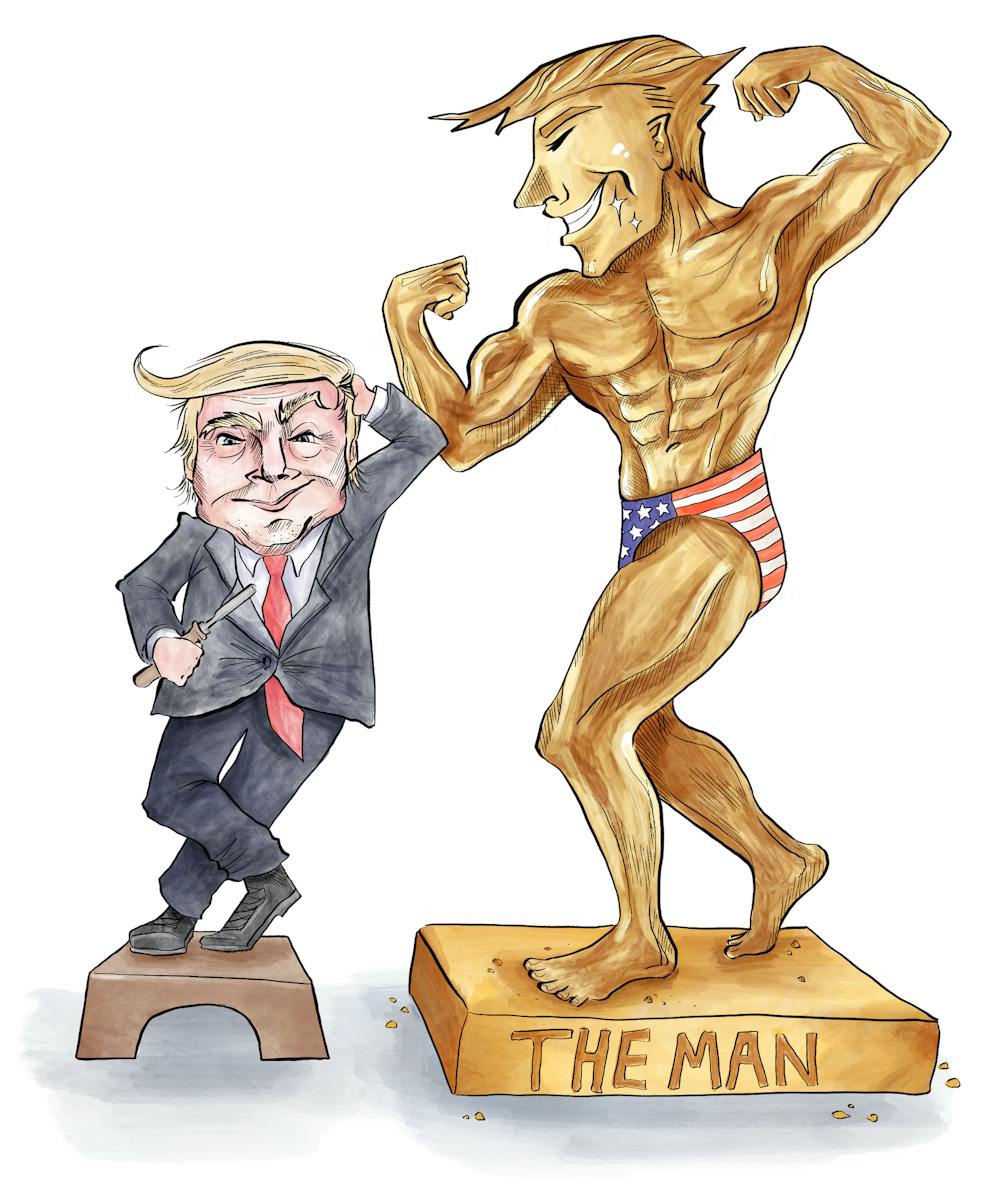Over the past few weeks, the United States Senate has held hearings and confirmed a series of President Donald Trump’s cabinet-level nominees, including candidates facing allegations of financial mismanagement and sexual impropriety. Looking at the people stepping into governmental positions of power, it is discomforting to see that there is a growing body of “macho” men. We are stacking our government with men who believe “women and low [testosterone] men” cannot think as clearly as so-called real men — men who believe in bringing back “masculine energy” so the workplace has more “aggression.” These men, who have stumbled upon positions allowing them to dictate laws and legislation, are doing so with a belief of superiority and importance. Trump and his cabinet appointees’ male-centric actions over the next four years will wreak havoc on federal policies, including those controlling healthcare.
The Trump campaign won over the male vote through an agenda of hypermasculinity, pushing messages of power over women and LGBTQ+ individuals through anti-abortion policies and bans on gender-affirmative care. Even in his first term, by promoting personal grit as a preventative method against COVID-19, Trump has converted himself into a cult icon with a gaggle of die-hard fans. By contrast, his speeches characterize his political opponents with feminine qualities that oppose his ideals of hegemonic masculinity, including competitiveness and ambition.
Hegemonic masculinity refers to discomfort with changing gender roles — under this idea, the male desire to remain at the apex of society encourages prioritization of physical strength, competitiveness and aggression. Robert F. Kennedy Jr., the U.S. Secretary of Health and Human Services, encourages this mindset. Hegemonic masculinity is inherently competitive, and Kennedy shames others for the convenience of processed meals and snacks over natural food choices, deeming them to be the lazy option. This fails to account for barriers in access to healthier food choices among minority and poorer communities.
Kennedy, under the weight of hegemonic masculinity, also uses characteristics that oppose masculine ideals as insults, giving them feminine connotations, such as describing fast food choices as “lazy.” During an interview on “The Joe Rogan Experience,” a podcast the politically unpredictable and serially derogatory Rogan hosts, Kennedy presented several of his conspiracy theories about health and wellbeing. He noted his disgust of processed foods and the American obesity epidemic, sharing unconventional and downright absurd ways to combat the problem: returning to a raw and caveman-like diet, with foods such as unpasteurized milk. In this light, Kennedy, and Trump by extension, are advocating for the continued derogatory perception of women and highlighting ultra-masculine, discriminatory figures, legislation and ideals.
Kennedy’s health advice, which Trump endorses, often contradicts scientific evidence and reasoning, telling Americans that they can overcome health obstacles by sheer will. In a video racking up millions of views, Kennedy presented himself as what reporters later called an image of “sheer masculinity,” reflecting a growing movement toward hegemonic masculinity.
When Kennedy was confirmed into his new role last week, he entered an echo chamber of men who hold similar stances on hypermasculinity. Americans must take his confirmation as a sign to take a more vested interest in their health. Given how deeply intertwined Emory University is with biomedical and public health research, we are privileged to have access to swaths of information about our physical and mental well-being. Changes in public health funding threaten the efficacy of our neighbor and frequent partner, the Centers for Disease Control and Prevention, and the Emory community must advocate for its protection.
The government should be a place everyone can turn to for clear and factual public health information. However, since the federal government no longer bothers to uphold that responsibility, we cannot be secure in trusting it. Now, more than ever, we must do our own research to ensure our health is being protected — we cannot rely on someone else to do so for us.
Contact Antara Goplan at agopa28@emory.edu.
Antara Goplan (28C) is from Walton-on-Thames, England.










